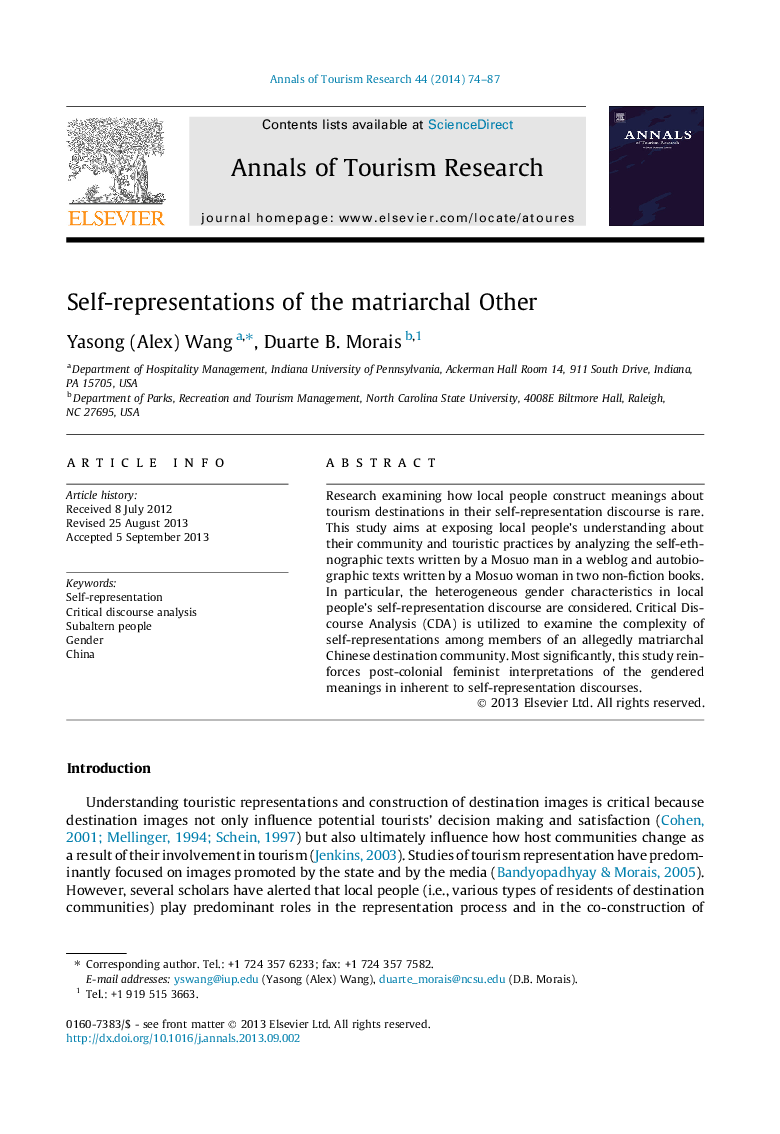| Article ID | Journal | Published Year | Pages | File Type |
|---|---|---|---|---|
| 1007120 | Annals of Tourism Research | 2014 | 14 Pages |
•We examine how local residents represent their communities and themselves.•The study focuses on a unique socio-cultural setting—the Chinese matriarchy.•The gendered nature in constructing self-representation discourse is identified.•The complexities and subtleties in counter-hegemonic discourses are verified.
Research examining how local people construct meanings about tourism destinations in their self-representation discourse is rare. This study aims at exposing local people’s understanding about their community and touristic practices by analyzing the self-ethnographic texts written by a Mosuo man in a weblog and autobiographic texts written by a Mosuo woman in two non-fiction books. In particular, the heterogeneous gender characteristics in local people’s self-representation discourse are considered. Critical Discourse Analysis (CDA) is utilized to examine the complexity of self-representations among members of an allegedly matriarchal Chinese destination community. Most significantly, this study reinforces post-colonial feminist interpretations of the gendered meanings in inherent to self-representation discourses.
